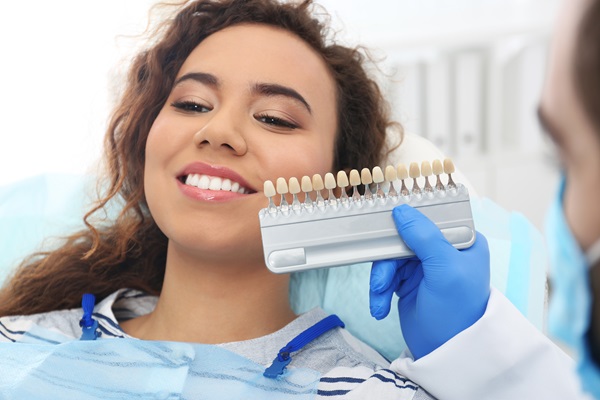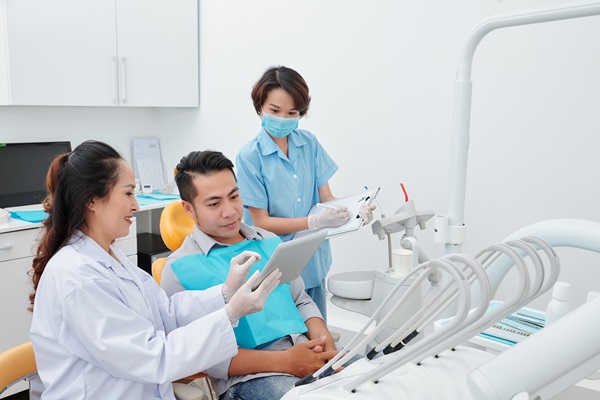Taking Care of Your Mouth After a Tooth Extraction

Tooth extraction can seem to be hard to recover from, but there are plenty of ways that a person can take care of their mouth after a tooth has been extracted.
With the help of this article, we will discuss a few ways that someone can take care of their mouths after they’ve had a tooth extracted. Being aware of how to properly care for the mouth after this procedure can be helpful to someone who has had their tooth pulled or who is expecting to have one pulled in the near future.
Taking care of your mouth after a tooth extraction
Rinse regularly
One of the best ways to care for your mouth after tooth extraction is by regularly rinsing with a saltwater rinse. Sometimes, immediately after a tooth is pulled, mouthwash may be too harsh to the wound or the area around it.
However, saltwater is gentle enough to not cause discomfort, but it will keep the mouth and area surrounding the wound, clean and free of bacteria.
Avoid chewing on that side
Another important thing that people should remember while taking care of their mouths after tooth extraction is to avoid chewing foods on the side of the mouth where the tooth was pulled. While the wound will eventually heal, it may be best to initially avoid chewing on that side.
Chewing could cause pain, swelling, inflammation or even minor bleeding - all of which can be harmful during the healing stages. It’s best to adapt to a liquid diet for a couple of days or just chew things that are softer and won’t harm the area where the tooth was pulled.
Regularly brush
When a tooth is extracted, there are often tissues within the mouth that are exposed. And, when oral tissues are exposed, it makes the area more prone to bacteria. By brushing regularly, a person can ensure that the area surrounding the pulled tooth, will remain free of bacteria and clean.
Often times, after tooth extraction, the area may be sensitive. With that being said, it is important to brush but very gently to ensure that pain or irritation doesn’t affect the area.
Pain medications
One other great way to take care of the mouth aer a tooth extraction is to take some kind of over-the-counter pain medication. While a dentist may suggest a certain one, it’s best to take them with food in order to avoid an upset stomach.
Because a person often feels pain from their tooth extraction, an over-the-counter medication can help with the discomfort as well as any inflammation that may be occurring immediately after the procedure.
Talk to a dentist
While all of these tips on taking care of your mouth after tooth extraction are helpful, there are plenty more too! It is ultimately best to talk with a dentist about tooth extractions and ways to care for the mouth and area afterward. They will be able to help guide you through the aftercare process.
If you have questions or concerns then reach out to our office so that we can help you further.
Request an appointment here: https://austinlakesdentistry.com or call Austin Lakes Dentistry: Scott T Gordon DDS at (512) 266-1308 for an appointment in our Austin office.
Check out what others are saying about our dental services on Yelp: .
Recent Posts
Tooth extraction is a safe, relatively quick procedure. Still, it’s a good idea to understand the procedure and prepare for it as best as possible. This will make both the procedure and the post-surgical recovery go as smoothly as possible. The dentist or surgeon performing the surgery will likely want to know your medical history beforehand.…
It can be hard to know exactly how to recover properly after tooth extraction. Long ago, there was a lot of pain involved afterward, however, modern-day dentistry has allowed for the evolution of less invasive techniques, which results in less swelling and less pain. Nonetheless, there are still a few things to consider after tooth…
Tooth extraction, or dental extraction, is the removal of a tooth from the mouth. There are many different reasons that a dentist may recommend tooth extraction, and it can be performed on any tooth inside the mouth. It is helpful to understand why a dentist may recommend it and how it can help your long-term…
Sometimes a tooth extraction is necessary. This procedure is not an easy thing to do, but it is often crucial for maintaining oral health, especially when leaving the affected tooth could cause other, usually much more severe health concerns. Some of the reasons for tooth extraction can be avoided with preventive care like dental checkups…


